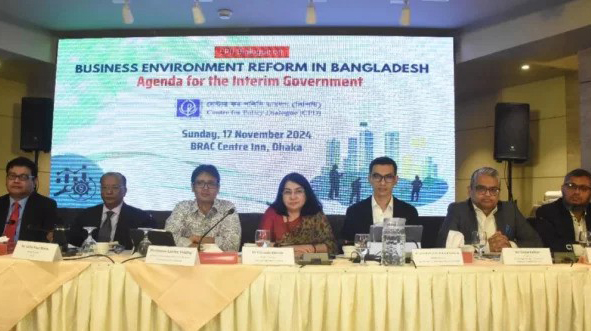3 major economic risks for Bangladesh in next two years: CPD

Bangladesh faces significant economic challenges in the immediate future, according to a survey by the Centre for Policy Dialogue (CPD). The three main risks over the next two years are inflation (33%), an economic downturn (16.3%), and poverty and inequality (13.3%). Additionally, factors such as extreme weather events, unemployment, and lack of economic opportunities further exacerbate the situation.
Corruption remains the most significant obstacle to doing business, scoring 16.67% among 17 problematic factors, followed by inefficient bureaucracy, foreign currency volatility, and inadequate infrastructure. While infrastructure issues have reduced, inflation and policy instability remain persistent challenges.
The survey also highlighted limited progress in Bangladesh’s business environment during the previous regime, with activities dominated by a few powerful groups. The lack of substantial reforms in policies and institutions has hindered the development of a participatory and competitive business landscape. This was particularly evident during the Anti-Discrimination Students Movement, which disrupted the business climate.
Chief guest Prof. Lutfey Siddiqi emphasized the need for systemic reforms, including reducing bureaucratic hurdles and establishing a private sector reform commission. CPD also noted that Bangladesh’s global competitiveness ranking remains low, falling behind India and Sri Lanka but ahead of Nepal and Pakistan. Without significant improvements, the country’s transition from LDC to a developing nation in 2026 may face further setbacks.





Comment here